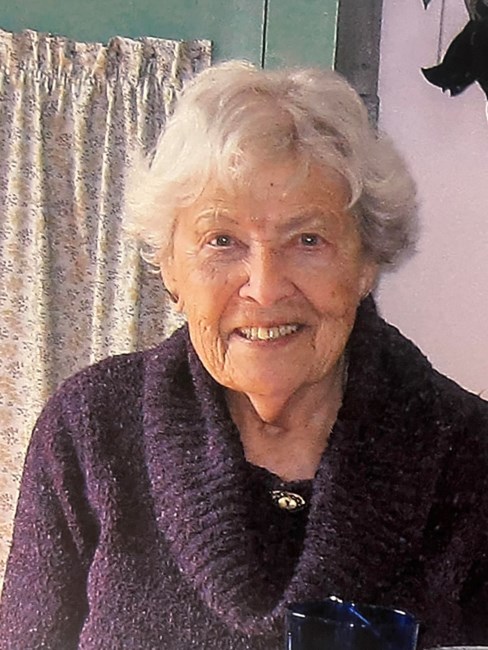
OBITUARIO
Pauline Adams
24 marzo, 1922 – 16 enero, 2024

Pauline Gordon was born on March 24, 1922, in New York City. She grew up in the Bensonhurst section of Brooklyn. Her father, Michael Gordon, was a dentist; and her mother, Lillian (Zamzok) Gordon, was a homemaker. Pauline attended the New York public schools, graduating first from P.S. 128 and then, at the age of sixteen, from New Utrecht High School. She went on to receive a BA in History from Brooklyn College in 1942 and an MA in Economic History from Columbia University in 1944. At Columbia, she assisted Professor Carter Goodrich in his research on American labor history.
While in college, Pauline met Walter Adams, a fellow student at Brooklyn College and a fellow alumnus of New Utrecht High School. They married in 1943, just before Walter was sent overseas to fight in World War II. After he returned from Europe, they lived briefly in New Haven, Connecticut, before moving to East Lansing in 1947. Apart from residential interludes in Nantasket, Massachusetts, Paris, France, and San Antonio, Texas, she lived in East Lansing for the rest of her life. Together, Pauline and Walter belonged to the group of young faculty that planned and created the Lantern Hill section of town.
Pauline was a lifelong teacher. As an adolescent, she taught younger children in her neighborhood how to play the piano. After completing her postgraduate studies, she taught at Lafayette High School in Brooklyn. After moving to East Lansing, she served briefly as a substitute teacher in the local high school, before taking a position at Michigan State University, where she taught in what was then called the Basic College Department of American Thought and Language. She retired in 1992, at the rank of Associate Professor. Her courses covered a combination of American history and American literature, from the colonial to the modern era. They also taught expository writing. After she retired formally from the university, she continued to teach for more than a decade, in what was then known as the MSU Evening College—a program aimed at the larger East Lansing community. For each iteration of her class, she chose a theme, and a few novels that, in various ways, enlighten readers on that theme. Her classes always filled. Despite a heavy teaching load, she published several articles; and, with Emma Thornton, she published a monograph, A Populist Assault: Sarah E. Van De Vort Emery on American Democracy, 1862-1895 (1982).
Pauline was also a lifelong student. Her subject was people. She found them endlessly fascinating. She always tried to understand the complexities and contradictions of those around her. Although she lived her own life intentionally, according to her own strong moral code, with “everything in moderation” as one mantra, she was able to make other people feel comfortable and eager to converse with her—regardless of their personalities or backgrounds or worldviews. Long after they left her classroom, and long after they left the neighborhood in which she lived, her former students and neighbors continued to seek her out. Not only were they devoted to her, but they continued to believe that their conversations with her were in some way essential to achieving happiness in their own lives.
Pauline Adams leaves her son, Jim (Barbara) Adams, her grandsons Matthew (Anna) Adams and Zachary Adams, her great-grandsons (Isaac and Theo), a niece (Amy Gordon) and a nephew (Bill Gordon). Her parents, brother, and husband preceded her in death.
Those who wish to donate in her memory might consider the Walter and Pauline Adams Scholarship in the Honors College of Michigan State University.
Muestre su apoyo
Comparta Un Recuerdo
Comparta
Un Obituario
Obtenga actualizaciones
Servicios
COMPARTA UN OBITUARIO
- RECIBIR RECORDATORIOS
v.1.9.6